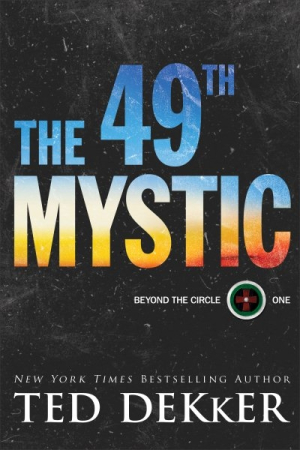The 49th Mystic
Rife with intriguing speculation, Ted Dekker’s The 49th Mystic pushes against the boxes that encompass much of modern Christianity.
The seemingly idyllic Eden, Utah, is an isolated religious community and the home to Rachelle, a girl born blind. Her father, David, has been seeking a cure through a combination of psychological and neurological means.
Rachelle’s vivid dreams are stalked by a presence she calls Shadow Man, a menacing entity who threatens to blind her even if she regains her sight. When an operation that David hopes will restore Rachelle’s vision is interrupted by Vlad Smith—Shadow Man embodied—Rachelle plunges into a coma and finds herself awake in the alien world of her dreams.
There, she discovers that she is the 49th Mystic, shouldered with a great destiny that could either harmonize or desolate both the dream world and Eden.
The interplay between reality and dreams, blindness and sight features prominently. Eden acts as a microcosm of the world at large, a stage for virtue and depravity. Inside Rachelle’s dreams, these themes are conveyed in more allegorical terms. But even here, assumptions are challenged. The villainous Horde—those who have rejected the saving grace of Justin—counts a man named Jacob among its members, but when his path crosses with Rachelle’s, his character is more complex.
Rachelle’s quest for the Five Seals of Truth—a task she must complete in time to save both worlds—deepens her development as a Mystic, a person who sees the world outside of the strict dualities imposed by the majority. She must encounter and unite with these truths to discover her real self and how she, and the rest of the world, relates to God.
The 49th Mystic delves into the heart of Christianity, attempting to exorcise a few black-and-white demons that have periodically plagued its expression.
Reviewed by
Meagan Logsdon
Disclosure: This article is not an endorsement, but a review. The publisher of this book provided free copies of the book to have their book reviewed by a professional reviewer. No fee was paid by the publisher for this review. Foreword Reviews only recommends books that we love. Foreword Magazine, Inc. is disclosing this in accordance with the Federal Trade Commission’s 16 CFR, Part 255.

